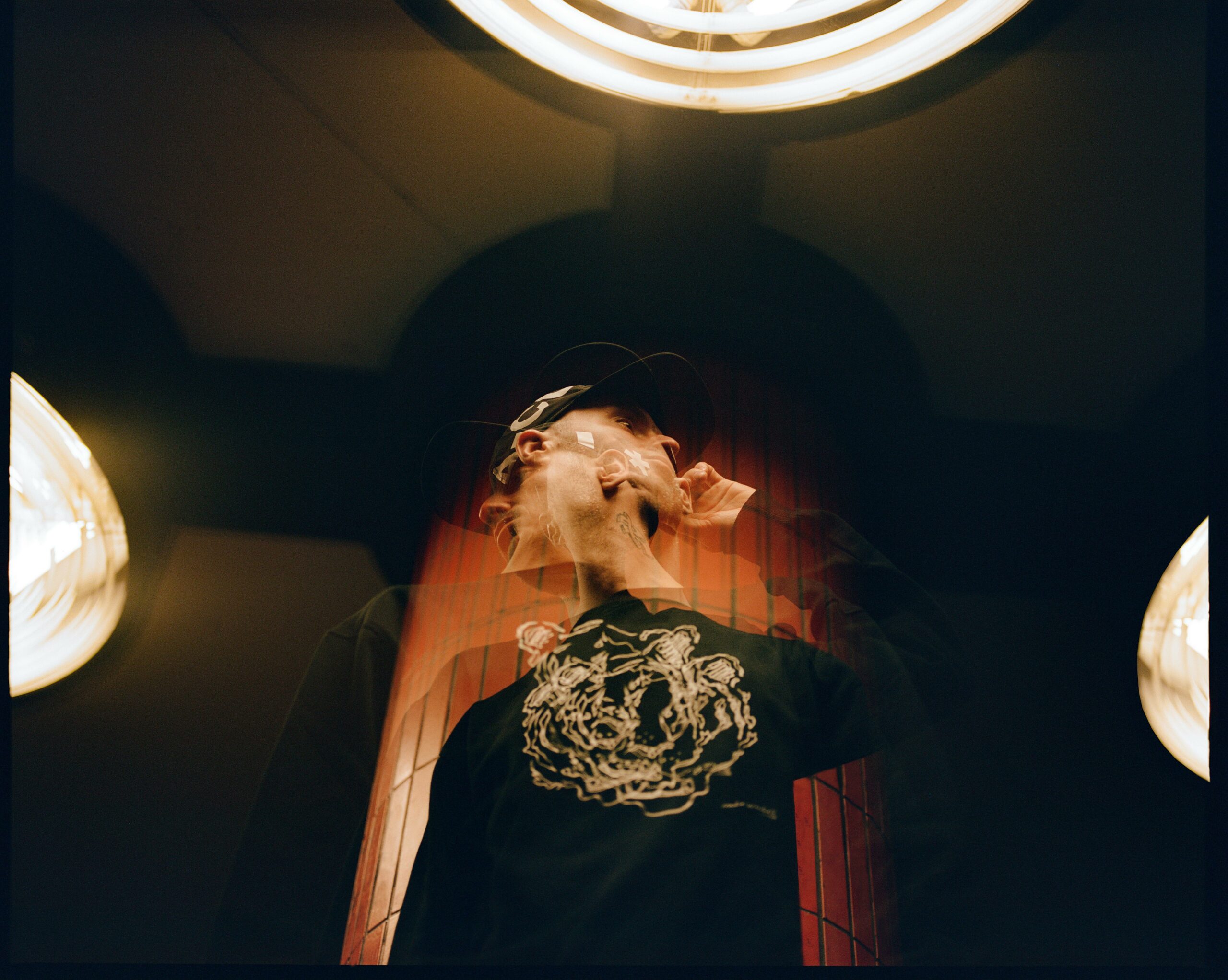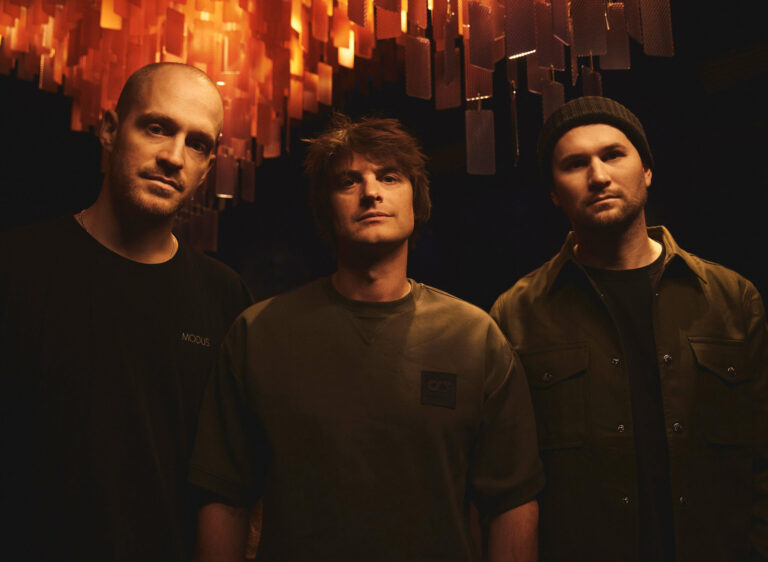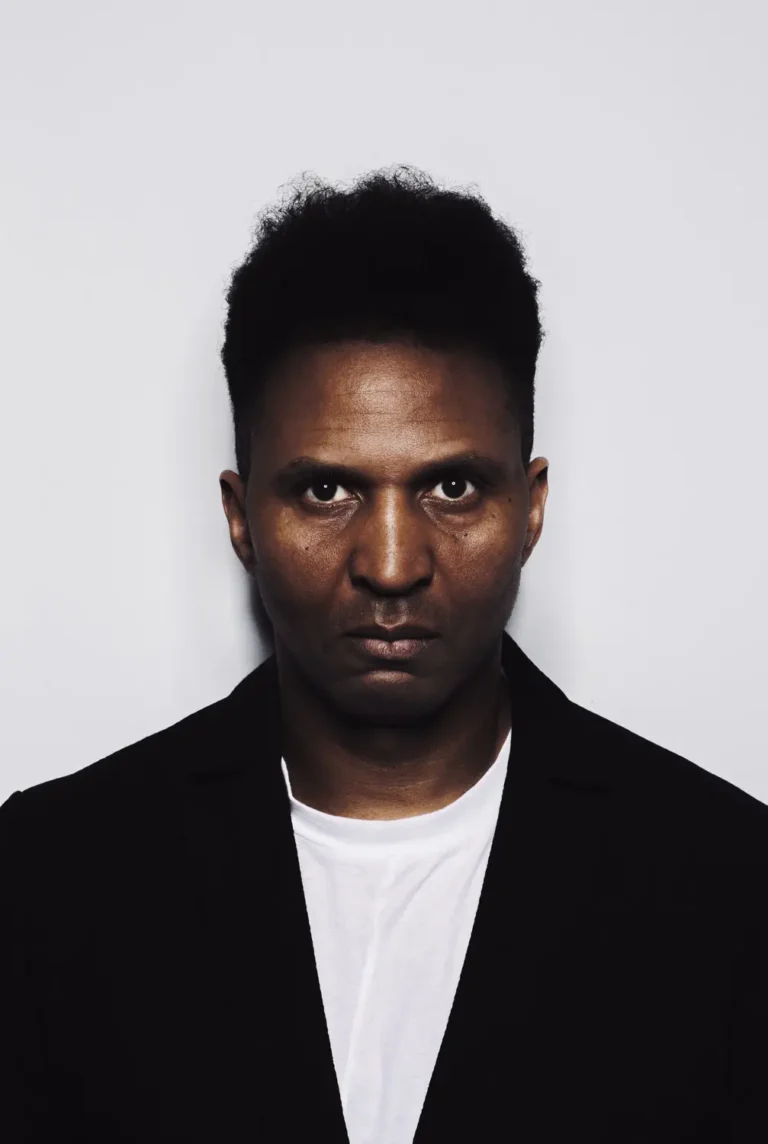I don’t blame my Macbook for constantly auto-correcting Sustance to substance. Because, in so many ways, this little typo says it all. Ever since we spoke with Oscar (Sustance) back in 2021, we – as innocent d&b loving bystanders – have been lucky enough to witness the weight of his artistry grow drastically within the scene.
Oscar’s debut album Perceived Connections is finally here. From 140 magic to some pretty bad-ass vocal features, the LP, released on Shogun Audio, is nothing but a bass-driven dream.
We needed the tea. Immediately. So, fresh off the back of a quick trip to Austria, Oscar jumped on Zoom to give us the goods.
First of all, Oscar, how are you? Talk me through your day…
I’m very well thank you! I went for a run this morning in sunny Clifton in Bristol. It’s been very nice, very chilled. There’s lots of nice nature here which is lovely.
Bristol is the place to be, ay!
It is. I’ve only been here six months but it’s somewhere that I always thought I’d like to live at some point. A lot of people I’ve known from over the years live here too. Plus, there’s a huge drum & bass scene, of course. I lived in London for 15 years and I love it there. I have a lot of friends and family there but after spending a few years in Berlin, I just couldn’t face going back to London. So Bristol it was. We might not be here forever, my partner and I both work remotely so we might stay here for a few years and then move on to pastures new. I find – personally and creatively – if I spend too long in the same place, that life can become quite stagnant.
New perspectives, new environments, I totally understand how that can help, especially creatively. What made you come back to the UK after living in Berlin?
We spent 2 years there, my album was coming out and the travelling back and forth ended up costing me quite a lot of money. We have a 10-year residency though so we might end up going back but for now, it felt like a nice natural end to our time there. Again, pastures new. Bristol is very similar to Berlin in many ways too. It’s a very creative, left-wing, counterculture kind of city.
So Oscar we’re here to celebrate your Perceived Connections LP – talk to me about the project. How did the project come about?
As an artist, I’ve always loved albums. I grew up listening to albums. I know that’s not how a lot of people listen to music now but that’s where I come from. A very hip-hop, vinyl collecting, DJ sort of background. It was one of those things where, when I started making music, I started making hip-hop on an MPC sampler and I always knew I wanted to make an album at some point. With the drum & bass project, it just felt like a natural time for me to fulfil that dream. Whether or not it was the smartest move in terms of career choice as you have to take a step back from releasing, then after the album you can’t just start releasing new club singles straight away. But once I get an idea, I just have to go with it.
I knew that I didn’t want to write a straight-up drum & bass album, although the majority is drum & bass. I wanted to write something that had a bit of diversity to it, that showcased all of the sounds that I’m into. I wanted to work with a lot of MCs too. I love rap and hip-hop and I’ve produced a lot of other genres under different aliases, working with lots of different MCs and vocalists, so I wanted to try and combine those two worlds together. I wrote a lot of tracks to get to the final 12, probably about 50 tracks in total.
Bloody hell! That’s a lot of tracks. So all of those tracks that didn’t make the cut, are they sitting on the back burner until you’re ready to do stuff with them?
I think they’re just going to disappear into the ether, into the hard drives! I think because there is a mental stigma around them now, in my own mind, they didn’t make the cut. Therefore, they’re not going on anything else. Every tune you write, you get better so since finishing the album, I’ve written a lot of tunes and have folders full of beats for new projects, and none of them are ones that were written for this project.
Fair, onwards and upwards. Was there anything in particular you wanted to get across with this LP, Oscar?
There wasn’t really a concept, I’m not that kind of producer. Music is just music to me. I just want to make sure it’s a bit of a journey that showcases the music I like, but that’s where it stops in terms of the deepness behind it.
It’s funny how as consumers, we are always looking for the deep story behind songs and ideas. A story that helps us understand the ‘true depth’ of where the artist was in that moment… But sometimes it’s just as simple as ‘this sounds bangin’, I’m going with this!’
Ha! Exactly. I know a lot of artists in a lot of different mediums who agreed that people who aren’t musicians tend to attach emotions to things, more so than the artists themselves. Which is the whole point right? I write music because I want people to feel something. And although maybe you didn’t have a specific idea, it always comes from within, which is maybe why people like it. To be fair, there are a lot of artists that are more high-brow than me that are very conceptual, and I love music like that. A lot of the music I listen to is music that I can connect to in some way. It’s like with tattoo artists. They’re artists who put ink on people’s skin, but a lot of people will say ‘Wow, what does that mean to you’ and they’re like… ‘Nothing. It’s just a nice picture.’
I’ve spoken with artists before who have said that sometimes, if life is a bit boring, they cast their minds back to a painful breakup or a difficult time just to try and instigate that emotion. Emotion that can then connect with your audience. Almost fabricate it from an old memory, just for the purpose of a track. I guess it’s all part of the art – right?
You can definitely channel old memories or feelings, and then I guess in doing that it’s easier to step away from it. That’s the beauty of doing that.
Why did you call the LP Perceived Connections?
I initially heard the two words together in a conversation on an artificial intelligence podcast quite a long time ago. They were talking about how machine learning algorithms can make connections between things when they’re learning and when they’re becoming sentient they basically can pre-guess what certain things are going to happen. I thought the two words were quite evocative together. I then just started thinking about how people listen to music in their own life and individual environments. It’s a little bit like what we were just talking about with being emotionally attached to things. One person can listen to something and feel a certain way, another person can listen to the same thing and experience something totally different.
You had a load of super interesting features on the album too, a real mix of talent. Was there anyone that you hadn’t worked with before that you were excited to work with?
Everyone actually! That was one of the great things about Shogun wanting to do the project. I had a meeting with Keir, the owner of the label, when he signed the project and he asked me if there was anyone in particular that I wanted to work with. They wanted to help in any way that they could. So we got to work. I’d already made the tune with T-Man as I’d known him for years. I used to sound engineer in recording studios and I engineered a tune that he made with a producer called Thelem.
I said I’d love to work with Flowdan and Strategy because, along with T-Man, they are three of my favourite UK MCs of all time, so that was wicked. They managed to facilitate both of those connections. Then Tiffany, Catching Ciro, she’s been one of my favourite singers for a long time. That one took a bit of time to get together but was so worth it. We ended up booking a studio session in Brighton. I flew over from Barcelona, which is where I was living at the time. That was my first time meeting Tiffany. It was cool because for all the other vocalists, I sent the beat and they sent back the vocals and it was done. Whereas with Tiffany, it was nice because we got to sit in the studio. She wrote the top-line and then we worked on verses together. It was nice to have that interaction as it seems quite rare these days.
Duskee, Zara Kershaw and Pola & Bryson. ‘Sweet Relief’ was the tune that we wrote at the writers camp at the end of last summer. We wrote a few tunes together but that was the one that stood out for us. I also felt like I needed a track on the album that had a bit more of a – not commercial – but sort of polished sound, as my usual sound is sort of avant-garde and discordant. Zara is such an incredible vocalist and top-liner. Anything she jumps on elevates it immediately. Working with Duskee was amazing too. He’s a one take wonder. I’ve done two tunes with him now and he’ll just sit there writing, then all of a sudden he gets on the mic, spits, and then he’s done. I’ll be like ‘Do you want to do any adlibs or second takes?’ and he’s like ‘Nope. All done.’ and it sounds perfect too.
All the collabs were very effortless, enjoyable and easy. Working with Visages too, we’ve been working together making tunes for years. That was a natural thing. I basically hit up a load of my mates and said ‘I’m writing an album and I’d love you to be involved’.
From your mindset to the actual production itself, did you do anything differently with this project?
For sure. I think because I was still working working a full time job when I was writing my other projects, as well as doing music on the side, things were very different with this one. Mid-pandemic, I was still working as a carpenter, and my workshop was closed down, which is when we decided to move to Berlin. Because of these big changes, we then had to make some changes in terms of our lifestyle too. I’ve always looked after my mental health in terms of exercise. That’s something I’ve been a big fan of, I did Muay Thai Kickboxing for years and I know how much training makes your mental health better. But going full time in music, that was a different thing entirely. I had to set my own alarm every morning. I had to train myself into getting myself up, going for a run before I start making music. I found that if I just woke up, made a cup of tea and started to write straight away, just sitting there in my pants, it could lead downhill for me in terms of my mental health. So yeah, the whole project was very different in terms of location, circumstances, job, mindset, the lot.
Making the music itself, I still write in a very similar way to what I’ve always done, which is extremely experimental. I spend a lot of time trying ideas, recording sounds, tweaking synths. I don’t have any project templates with previous tracks in. I find that quite restricting. I’ve tried things like this over the years and I find it makes the process of writing music a bit boring, for me anyway. I start with a blank canvas every time.
What is the most difficult or testing thing about putting together an album? Something that the listeners aren’t privy to?
As I said previously, I’ve written a lot of tunes for this project and a lot of them were club tunes. I didn’t want to just write a drum & bass album with 12 clubby drum & bass tunes. There’s nothing wrong with that, but I knew for this project I wanted to be extremely varied. So I found it difficult pulling tracks from the album that were good tunes. Having the mindset to brutally cut music from the album was the hardest thing.
Oscar – last but by no means least – what changes would you love to see in the D&B scene?
More diversity 100%. I used to go to raves when I was 15 and without sounding like a boomer, you used to have to be a bit more on your Ps and Qs. There were much more people from different cultures in the rave back then. Maybe it was because I was a lot younger but I felt like raves were just so much more diverse. The DJs, the punters, the artists. Sometimes you play at raves now and you’re like ‘wow – this is so white’. You know, music is music and it goes in cycles, people age out of scenes, perhaps that’s part of it but I do think whatever the reason is, promoters in particular could be much more vigilant when it comes to booking people for lineups. Making sure there is more gender diversity and racial diversity. It would make the scene much better in every sense. Diversity is better for everyone. This is actually one of the reasons we left to go to Berlin, because of Brexit, because of the sentiment. This homogeneous, Tory, white, grossness that is so anti-music and anti-art. Against everything that I believe in. So, without going too much deeper into that, more diversity is key. It would make the scene a much, much better place.


